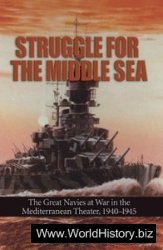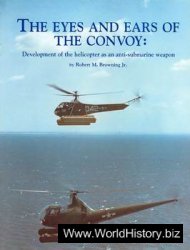ODD ARNE WESTAD
Historians have always believed that good sources make for good studies. When Lord Acton was planning the Cambridge Modern History a hundred years ago, his view of the massive enterprise was much influenced by the sudden and extraordinary access to historical archives that came about in the 1890s. In his instructions for contributors to the vast effort which he organized but never saw completed, Acton wrote:
In our own time, within the last few years, most of the official collections in Europe have been made public, and nearly all the evidence that will ever appear is accessible now. As archives are meant to be explored, and are not meant to be printed, we approach the final stage in the conditions of historical learning. The long conspiracy against the knowledge of truth has been practically abandoned, and competing scholars all over the civilised world are taking advantage of the change.1
Many optimistic historians of and in the twentieth century believed that the events of the 1990s made for a breakthrough in historical knowledge similar to that which Lord Acton and his colleagues had perceived a hundred years before. With the collapse of the Soviet Union, scholars began gaining access to the formerly secret archives of states and governments all over the world - not just because of the fall of authoritarian and secretive Communist regimes, but also because many political leaders in many parts of the world believed that "freedom of information," as it is now often called, had become an integral part ofgood governance. While very often producing as selective and partial a documentation as that of the nineteenth century had turned out to be, the new access to information in the 1990s meant real advances for historians, especially those attempting to understand events of the late twentieth century.
But while John Acton believed in a progressive and positivist version of history, which met "the scientific demand for completeness and certainty," the blood-soaked trail of the past hundred years has led scholars toward more skeptical attitudes in their research. At the beginning of the twenty-first century, historians’ evidence tends to be more multiform and their research questions more varied than could have been imagined four generations ago. Fields of human activity and sections of humanity that merited barely a mention in the first edition of the Cambridge Modern History have now become large fields of study in their own right. Some of the boundaries of class, ethnicity, and gender are being dismantled. The methodologies for the study ofhistory have become more diverse and its communities more international. As a result of this increasing diversity, knowledge has become less certain, and the space for conflicting interpretations much broader.2
The Cambridge History of the Cold War is defined by such skepticism and contention. Very few of our contributors believe that a "definitive" history of the Cold War is possible (or indeed that it should be possible). But a heterogeneous approach creates a strong need for contextualization, what Acton thought of when he called upon his team to "describe the ruling currents, to interpret the sovereign forces, that still govern and divide the world."3 We need to place the Cold War in the larger context of chronological time and geographical space, within the web that ties the neverending threads ofhistory together. First and foremost we need to situate the Cold War within the wider history of the twentieth century in a global perspective. We need to indicate how Cold War conflicts connect to broader trends in social, economic, and intellectual history as well as to the political and military developments of the longer term of which it forms a part.
This chapter attempts to position the Cold War in the history of the twentieth century along some ofits main axes: political and economic history, the history ofscience and technology, and intellectual and cultural history. It is not an extensive placing of the period within the greater whole - for that, one needs to continue reading until one has finished the last chapter in volume III.
By looking at the Cold War in its multiple contexts, we hope to better understand its long-term causes and also, perhaps, to get a better grasp of its outcome and consequences. But, in order to do so, it is necessary to begin with a look at that small patch of the century’s intellectual history that the study of the Cold War itself has tried to fill.




 World History
World History









